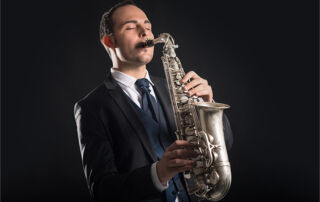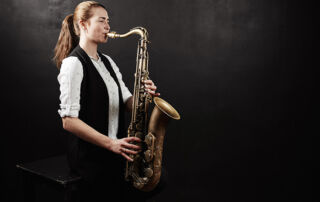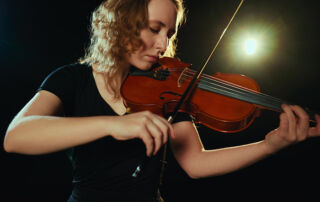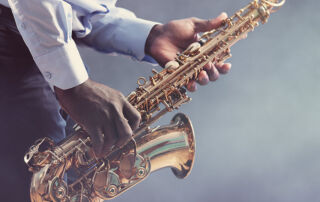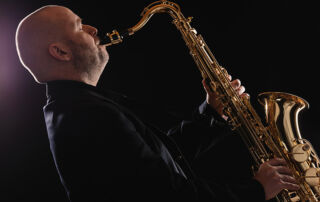During my coaching sessions, one topic always comes up: "stage fright."
Let's start by defining what stage fright is. According to Larousse: "Fear or anxiety unreasoned that someone experiences when appearing in public, undergoing a test, performing a dangerous exercise, etc."Stage fright can have symptoms such as an increased heart rate, shortness of breath, sweating, stomach aches, a 'tight' throat, etc. It can also lead to negative thoughts, insomnia, and loss of self-confidence.

You have surely experienced moments of great stress that made you forget your lines, miss high notes, lose the rhythm… as if suddenly, when it's your turn to take the microphone, you lose all your means. This may have traumatized you, and you no longer want to go on stage for fear of encountering your worst enemy again, stage fright.

Take a deep breath and ask yourself: why are you afraid of the stage?
Remember the definition of stage fright: "irrational fear or anxiety."
In reality, there is often no objective reason for these fears. Stage fright is like a red light warning us of danger. However, in front of an audience, the danger is "unreal" because we create it ourselves by imagining everything that could go wrong, and we suffer from it.
What if we looked around us? During La Grande Sophie's concert, the artist had to start her next song but couldn't remember the lyrics.
Thanks to the fans who started singing, she managed to continue. Do you see where I'm going with this? Your fear of being judged is unfounded! The audience admires your courage to go on stage; they are there to support you, not to destroy you.
After realising that stage fright is often caused by unreal fears, let's take another perspective. Have you ever felt adrenaline before a bungee jump or a job interview?
Adrenaline is caused by the stress of facing a situation for the first time, and yet it is not associated with negative emotions! On the contrary, it is "good stress."
It reminds you of the importance of what is about to happen, bearing witness to your willingness to give your best and the respect you have for your audience and your activity. Always keep it by your side because it pushes you to surpass yourself each time.
If this good stress is not present, it is a sign that ego has taken over and there is no longer any investment on your part, that you are stagnating in your comfort zone.

Now you are probably wondering how to manage stage fright?
I invite you to take a piece of paper and a pen and write down your fears related to your activity. By verbalising them, you will free yourself from some of the anxiety. To combat the enemy, you must know it well.
Once you have identified them, separate your fears into three categories: fears related to yourself (for example, forgetting the lyrics, lack of voice control, and tempo); fears related to the audience (their judgment, their attention); and those related to external factors (e.g., technical problems).
To avoid problems related to sound, lighting, the venue, temperature, etc., I advise you to visit the location some time in advance to observe the constraints that could impact your performance and to be accompanied by technicians. If a problem does arise, have fun with the audience.
As for the fear of judgment, I won't hide that it will always be present. Accept that you can't please everyone. Stay true to yourself, and you will meet people who will love you for who you are and who will support you over time.
Let's return to your internal fears. Good news, you can combat them, even if learning to manage your stress can take years.
Often, we are afraid of failing because we haven't worked enough beforehand. The key is regular practice.
The more you work on a song, the better you will know it and the better you will interpret it. Repeat your text out loud and take the time to fully understand its meaning.
Even with thousands of hours of practice, no one is immune to forgetting. However, by understanding the meaning of the words, you will be able to replace them, and rest assured, no one will hold it against you!

And the fear of singing "badly"?
This is why vocal technique is so important. Work with a coach who will give you tools to better master your voice. Once you are comfortable with a repertoire, sing it over and over again. Your performance will improve over time, and this will give you confidence for the future.
You can practice breathing and relaxation exercises to connect with your body and align yourself.
Another technique I recommend is visualisation.
Before the performance, visualise the place where you will sing using your senses: what do you see, hear, smell, touch? Try to visualise and hear during and after: the audience's applause, their joy and energy. Feel the pleasure of being on stage!
Positive thoughts are an important driver against bad stress.
In summary, to manage stress, it is important to know the source of your fears and to work regularly to combat them.
But work alone is not enough, as anxiety can resurface. Positive thoughts can lead to encouraging results and mitigate your failures. Because there will be failures, but by believing in your abilities and giving yourself all the means to succeed, as I have outlined throughout this article, you can achieve your dreams.
At the Paris Music Institute, we are here to accompany you throughout your journey.

